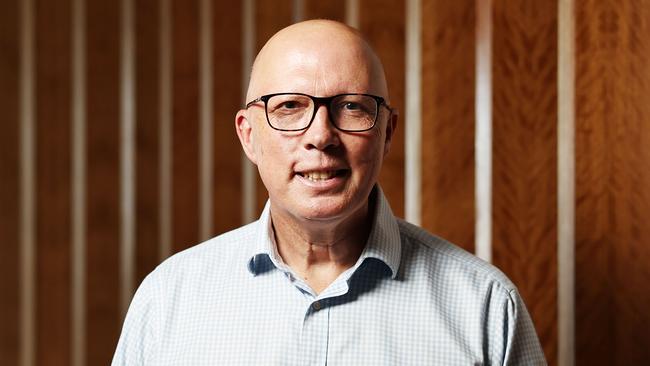Coalition’s permanent migration cuts ‘unreachable’, ‘a double-edged sword’, experts say
Immigration expert Abul Rizvi says Peter Dutton’s election pledge to slash the permanent migration program may limit the skilled worker intake and damage the budget bottom line.

Immigration expert Abul Rizvi says Peter Dutton’s election pledge to slash the permanent migration program may limit the skilled worker intake and damage the budget bottom line, as economists caution that the proposal is a double-edged sword.
As migration shapes up as a key election issue, the Opposition Leader has doubled down on his commitment to cut permanent migration to 140,000, in a move that Dr Rizvi has criticised, citing its impact on the nation’s finances.
A former deputy secretary of the Department of Immigration, Dr Rizvi said cutting permanent migration to the levels proposed by Mr Dutton while processing applications from the family visa stream as required, could reduce the skills stream to as few as 60,200 migrants, from the current level of 132,200.
Partner visas must be processed on a demand-driven basis under migration law.
Declaring that the Coalition’s target was “unreachable” and the “arithmetic doesn’t work”, Dr Rizvi said the backlog of partner visa applications, which reached 75,600 in June, could force the Coalition to increase the family stream by about 27,000 and cut into the skills intake.
Dr Rizvi said reducing skilled migrants over family categories would have a negative impact on the budget because in-demand, high-earning workers contributed more in taxes over their lifetime.
The concept, developed by Treasury, has been dubbed the Fiscal Impact of New Australians model. “If you cut certain parts of the migration program, the budget actually improves; if you cut other parts of the migration program, the budget actually gets worse,” Dr Rizvi said.
“So, for example, think about an engineer who is sponsored to work on some big project and is going to earn $200,000 a year.
“That engineer will obviously have a net positive impact on the budget because they will use relatively few government resources but will pay lots of tax.”
Independent economist Saul Eslake said cutting migration to reduce pressure on the housing market was a double-edged sword and had the potential to lead to higher inflation.
“I know this might sound hard, but because it will reduce both demand and supply, it will have some disinflationary effects on housing, for example, but it could also have some inflationary effects in other parts of the economy,” he said.
The Coalition vowed to cut net migration to 160,000 in addition to permanent migration, but Mr Dutton later walked back the commitment. Permanent migration has very little bearing on net migration because most visa-holders are already in the country.
Mr Eslake said cutting immigration would reduce demand for housing but it would create problems for employers trying to fill vacancies.
“Cutting migration will almost certainly lead to skills shortages, supply chain disruptions, possibly put upward pressure on wages because employers will be forced to compete … and it could lead to poorer services simply because there aren’t enough people to provide them,” he said.
Budget-watcher Chris Richardson said: “Australia has been a big beneficiary of migration, particularly skilled migration. There are countless studies that set out the advantages. The complication of Australia’s situation is 40 years of ‘not in my backyard’ means we have comprehensively screwed up housing and governments haven’t done enough on building infrastructure.”
AMP chief economist Shane Oliver said there was a case to “calibrate” the immigration intake to be more sustainable, while balancing the risk of slashing skilled migrants or crippling the international education sector. “Yes, we do need to get immigration levels down to be more in line with the ability to properly supply housing, but we’ve got to be very careful … and make sure we don’t shoot ourselves in the foot,” he said.
ANU migration expert Alan Gamlen said a lack of supply was to blame for the nation’s housing crisis rather than migration. “Now people are beginning to realise that is a false connection. We’re only about now catching up with the huge shortfall of migration we had during the pandemic.”



To join the conversation, please log in. Don't have an account? Register
Join the conversation, you are commenting as Logout